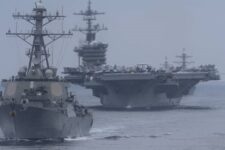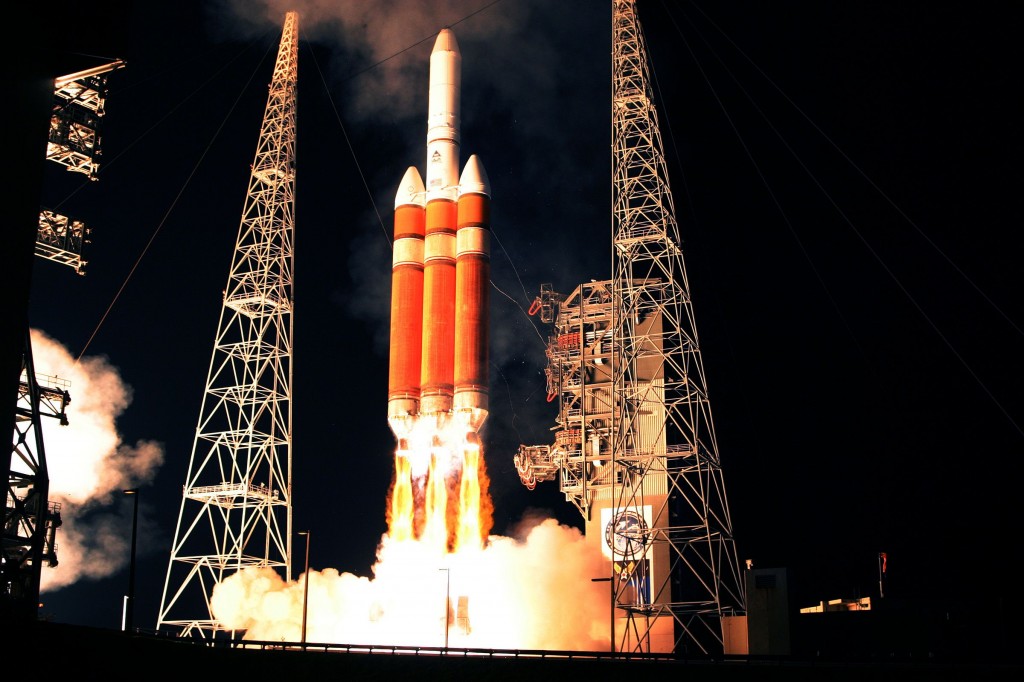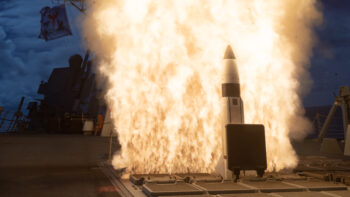WASHINGTON: While few doubted it would happen, the news that Elon Musk’s scrappy, pushy and — yes — disruptive launch company SpaceX won certification from Space and Missile Systems Center carries enormous import for the international launch industry, for the Pentagon, the Air Force and the Intelligence Community.
It’s not that Musk’s SpaceX is going to win deals tomorrow from the current national security launch monopoly, the United Launch Alliance. It’s that Musk has proven to many of the world’s most demanding acquisition experts and systems engineers that a commercial company can do rocket science to the same standards as ULA’s Boeing and Lockheed Martin.
Sen. John McCain, chairman of the Senate Armed Services Committee, reacted swiftly to the news.
“The certification of SpaceX as a provider for defense space launch contracts is a win for competition. Over the last 15 years, as sole-source contracts were awarded, the cost of EELV was quickly becoming unjustifiably high,” he said in a statement this evening. “I am hopeful that this and other new competition will help to bring down launch costs and end our reliance on Russian rocket engines that subsidizes Vladimir Putin and his cronies.”
Today, that is a very high standard. ULA has notched up 90-some launches without one blowing up or failing to place its payload into orbit. Not all of those were national security launches for the Air Force or National Reconnaissance Office (NRO), but the tally is close to three-quarters of the total.
Lt. Gen. Ellen Pawlikowski, then Air Force military deputy for acquisition, told me before Christmas there was little doubt that SpaceX would get certified. As the former commander of SMC and Deputy Director of the NRO, Pawlikowski is one of the most experienced and respected folks in America’s space enterprise, so her words meant much. But no one in the Air Force wanted to take the chance of rushing the process. So they didn’t. And the certification process took about six months longer than predicted, much to Musk’s very vocal chagrin. But it looks pretty clear in retrospect that Musk — with his paucity of experience with the defense and intelligence communities — just didn’t understand that they took this really seriously and didn’t care if he wanted it to happen faster.
What are the stakes? National security launches can take billion-dollar payloads that perform crucial military and intelligence work into space. Lose one to an exploding rocket and you not only have lost more than $1.25 billion — including the cost of launch — but you’ve also lost the capability, the time, the money and then you must fork over even more money to replace what was lost.
But SpaceX came in at a time when launch did nothing but get more expensive, especially under the Evolved Expendable Launch Vehicle (EELV) program that placed national security payloads into orbit. SpaceX used non-traditional acquisition authorities. They didn’t push the envelope on technology. Instead, they pretty much refolded the envelope, using proven tech and simplifying both production and the systems themselves. Capitol Hill loved the prospect that Musk might introduce real competition into the military launch realm and bring down the cost of lofting each kilo into orbit.
But Musk stumbled, as have almost all launch companies when introducing new vehicles. He kept aiming for three pristine launches in a row and kept missing for one reason or another (although Elon found it very difficult to admit things didn’t go as planned.) His Falcon 1 failed on its first launch. The second launch made it off the pad but problems occurred at separation. And the third launch was a bust as well. He built the much-larger Falcon 9 — a heavy version of which presumably will handle the big satellite launches in years to come. The Falcon 9 has proven much more reliable, delivering crucial supplies to the International Space Station. Musk kept improving his products and their reliability. He proved himself. And today SMC has given its imprimatur to Musk’s efforts.
A Senate Armed Services Commtitee staffer put it this way, talking about disruptive effects of companies like SpaceX that don’t use the traditional Pentagon acquisition system: “SpaceX is a great case study in how this can work in the future. A non-traditional company can be created from nothing and disrupt an established market.”
Just ask ULA, Boeing and Lockheed how well Elon has disrupted their world.
Major trends and takeaways from the Defense Department’s Unfunded Priority Lists
Mark Cancian and Chris Park of CSIS break down what is in this year’s unfunded priority lists and what they say about the state of the US military.




























